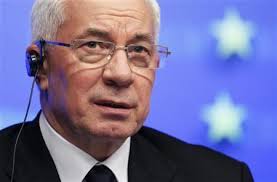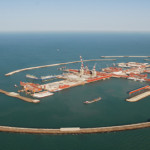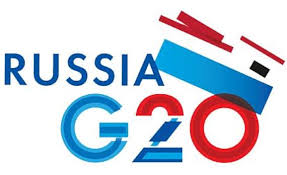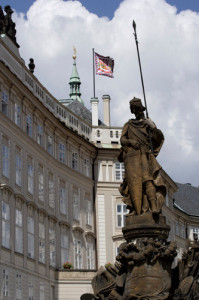All English posts
“As you know, the Kaliningrad region is isolated, geographically isolated, so we could apply some measures also to cut something,” said Linas Linkevicius, Lithuanian Foreign Minister. “Transport, we could cut off trains, but not only trains, also the supply of goods, whatever. It is theoretically possible,” the official added. 
Journalists raised the topic as Lithuania, which currently holds the rotating presidency in the EU, is preparing to host the Third Eastern Partnership Summit– the major conference dedicated to strengthening trade ties between the European economic bloc and six states in Eastern Europe and the Caucasus – Armenia, Azerbaijan, Belarus, Georgia, Moldova and Ukraine. All of these countries are Russian neighbors and close economic partners.
Russia is currently building its own economic bloc – the Customs Union – which currently consists of itself, Belarus and Kazakhstan, but to which it welcomes other neighboring nations.
Brussels is locked in an increasingly tense standoff with Moscow over its Eastern Partnership policy, which is designed to draw six countries — Ukraine, Belarus, Moldova, Georgia, Azerbaijan and Armenia — more closely into the European fold.
At the Vilnius summit on Nov. 28 to 29, the EU is expected to sign a free trade deal with Ukraine and take further steps towards free trade agreements with Moldova and Georgia. No substantial progress is expected with the other partnership states, which remain more closely aligned with the Kremlin.
The Cabinet of Ministers approved the draft Association Agreement between Ukraine and the European Union and its member states.
“It just became known that the government had approved the draft Association Agreement with the EU,” a government spokesman told journalists in Kyiv. The government published the draft agreement on the Web site of the Cabinet of Ministers in August 2013. 
The 236-page document comprises of seven sections and 486 articles, some of which deal with the media activities, protection of personal data, protection of intellectual property, and other issues.
According to the draft agreement, the aims of association are to promote a gradual rapprochement between the parties based on common values and close and privileged links, and increasing Ukraine’s association with EU policies, and participation in programs and agencies, establish conditions for enhanced economic and trade relations leading towards Ukraine’s gradual integration in the EU internal market including by setting up a Deep and Comprehensive Free Trade Area, as well as to enhance cooperation in the field of justice, freedom and security with the aim of reinforcing the rule of law and the respect for human rights and fundamental freedoms.
Ukraine and the EU started negotiations on new agreement in 2007. The parties initialled an Agreement on association and profound and overall free trade area on March 30, 2012.
Ukrainian Prime Minister Mykola Azarov said the agreements, which should be signed at a November summit in Lithuania, raised the prospect of “a European quality of life” for the ex-Soviet republic.
“We believe we must make every effort for Yulia Tymoshenko to be freed before the Vilnius summit,” Iryna Gerashchenko, a deputy for the opposition party UDAR, told Interfax-Ukraine.
“Even though the signing is important to the EU and Ukraine, the EU will never be able to close its eyes to the violation of fundamental values such as human rights, including the right of defense in a court and the right to justice,” she said.
From Unian and Interfax-Ukraine
G20 LEADERS DECLARATION, Saint Petersburg 2013.
12 Sep 2013Preamble
1. We, the Leaders of the G20, met in St Petersburg on 5-6 September 2013, united by our continued commitment to work together to strengthen the global economy.
2. Strengthening growth and creating jobs is our top priority and we are fully committed to taking decisive actions to return to a job-rich, strong, sustainable and balanced growth path.
3. In the five years since we first met, coordinated action by the G20 has been critical to tackling the financial crisis and putting the world economy on a path to recovery. But our work is not yet complete and we agreed that it remains critical for G20 countries to focus all our joint efforts on engineering a durable exit from the longest and most protracted crisis in modern history.
4. Our most urgent need is to increase the momentum of the global recovery, generate higher growth and better jobs, while strengthening the foundations for long-term growth and avoiding policies that could cause the recovery to falter or promote growth at other countries’ expense.
5. We understand that sound and sustainable economic growth will be firmly based on increased and predictable investments, trust and transparency, as well as on effective regulation as part of the market policy and practice.
6. As Leaders of the world’s largest economies, we share responsibility for reinforcing the open and rules-based global economic system. We are committed to working cooperatively to address key global economic challenges:
– Achieving a stronger recovery while ensuring fiscal sustainability. We have today agreed the St Petersburg Action Plan, which sets out our strategies to achieve strong, sustainable and balanced growth.
– Unemployment and underemployment, particularly among young people. We are united in the resolve to achieve better quality and more productive jobs. Coordinated and integrated public policies (macroeconomic, financial, fiscal, education, skills development, innovation, employment and social protection) are key to reach this goal. We today committed to continue our efforts to support inclusive labour markets, with the exchange of country-specific plans or sets of actions, developed as appropriate according to our different constitutional circumstances.
– Importance of long-term financing for investment, including for infrastructure and SMEs to boost economic growth, job creation and development. Today we endorsed the work plan that helped us to assess factors affecting the availability and accessibility of long-term financing for investment and committed to identify and start to implement a set of collective and country-specific measures that tangibly improve our domestic investment environments.
– Free and rules-based trade fosters economic opportunities. We stress the crucial importance of strong multilateral trading system and call on all the WTO members to show the necessary flexibility and reach a successful outcome in this year’s multilateral trade negotiations. We extend our commitment to refrain from protectionist measures and aim at enhancing transparency in trade, including in regional trade agreements.
– Cross-border tax evasion and avoidance undermine our public finances and our people’s trust in the fairness of the tax system. Today, we endorsed plans to address these problems and committed to take steps to change our rules to tackle tax avoidance, harmful practices, and aggressive tax planning.
– We have agreed and are implementing a broad range of financial reforms to address the major fault lines that caused the crisis. We are building more resilient financial institutions, making substantial progress towards ending too-big-to-fail, increasing transparency and market integrity, filling regulatory gaps and addressing the risks from shadow banking. We will pursue our work to build a safe, reliable financial system responsive to the needs of our citizens.
– G20 countries have a responsibility to ensure that all people have an opportunity to gain from strong, sustainable and balanced growth. We endorse the St Petersburg Development Outlook to focus our efforts on concrete steps to improve food security, financial inclusion, infrastructure, human resource development and domestic resource mobilization.
– Corruption impedes sustainable economic growth and poverty reduction, threatening financial stability and economy as a whole. We will hold ourselves to our commitment to implement the G20 Anti-Corruption Action Plan, combating domestic and foreign bribery, tackling corruption in high-risk sectors, strengthening international cooperation and promoting public integrity and transparency in the fight against corruption. Recognizing the need for sustained and concerted efforts we endorse the St Petersburg Strategic Framework.
– We share a common interest in developing cleaner, more efficient and reliable energy supplies, as well as more transparent physical and financial commodity markets. We commit to enhance energy cooperation, to make energy market data more accurate and available and to take steps to support the development of cleaner and more efficient energy technologies to enhance the efficiency of markets and shift towards a more sustainable energy future. We underscore our commitment to work together to address climate change and environment protection, which is a global problem that requires a global solution.
– We will continue to develop comprehensive growth strategies to achieve stronger, more sustainable and balanced growth in the context of fiscal sustainability.
7. Too many of our citizens have yet to participate in the economic global recovery that is underway. The G20 must strive not only for strong, sustainable and balanced growth but also for a more inclusive pattern of growth that will better mobilize the talents of our entire populations.
Saint Petersburg Summit
5-6 September 2013
Kashagan, first oil volumes produced.
11 Sep 2013 The North Caspian Operating Company (NCOC) has reported the first oil has been extracted from Kazakhstan’s massive offshore Kashagan field.
The Kashagan field in the Caspian Sea has an estimated 4.8 billion tons of oil reserves as well as natural gas. 
Production at the site is years behind schedule.
Partners in the NCOC are KazMunaiGaz, Italy’s Eni, France’s Total, the Anglo-Dutch company Royal Dutch Shell, the U.S. company ExxonMobil, and Japan’s Inpex.
Kazakhstan recently used its preemptive right to purchase a 8.45 percent share from ConocoPhillips and reports indicate Kazakh authorities will sell that stake to the China National Petroleum Corporation.
Turkmenistan – China, new gas agreements.
10 Sep 2013 The Chinese and Turkmen presidents announced the completion of the first phase of the Galkynysh gas field, which will supply gas to China.
China National Petroleum Corporation also signed a new contract to import gas from Galkynysh” the world’s second-largest gas field” a deal experts said will ensure China’s growing natural gas supply and help Turkmenistan secure a stable buyer.
President Xi Jinping and his Turkmen counterpart Gurbanguly Berdymukhamedov attended the ceremony marking the start of operation of three processing plants at Galkynysh in South Turkmenistan.
Insiders told China Daily that each plant has an annual output of 10 billion cubic meters of gas.
A plant jointly developed by China National Petroleum Corporation will send its products entirely to China, and some gas from the other two plants is also likely to be sent to China.
Turkmenistan is China’s largest supplier of natural gas, and China is the largest overseas market for Turkmenistan’s natural gas.
Xi and Berdymukhamedov said that the annual transport of 65 billion cubic meters of natural gas from Turkmenistan to China by 2016 will be ensured through the world’s longest natural gas pipeline.
In 2009, the two nations put into operation a pipeline of more than 8,000 km to bring vital energy supplies through China’s western region.
China imports about 40 billion cubic meters a year from Turkmenistan.
According to insiders, most of the newly added 25 billion cubic meters will be from Galkynysh.
China National Petroleum Corporation, the country’s largest energy producer, announced that it had signed an agreement with Turkmenistan to import 25 billion cubic meters of natural gas annually.
“By Sept 3, the total quantity of China’s natural gas import contracts were about 119.6 billion cubic meters (excluding the new contract of 25 billion cubic meters with Turkmenistan), which means that there is still a big shortage for China’s natural gas imports,” said Wang Ruiqi, a senior analyst with ICIS Energy.
She said the new contract with Turkmenistan will ensure China’s natural gas supply.
Turkmenistan holds the world’s fourth-largest natural gas reserves and possesses vast reserves of oil. It is estimated that 400 million people in China benefit from natural gas from Turkmenistan.
Full Article From China Daily Sept. 5th, 2013.
G20 Leaders’ Summit. The programme.
5 Sep 2013On September 5-6, 2013 the G20 Leaders’ Summit will be held in St.Petersburg. The Summit, which is the culmination of the Russian Presidency year, will mark the 5th anniversary of the G20 at the Leaders’ level. 
The key objective of the G20 at this moment, given the continuing instability at the financial markets, unemployment remaining high and persistent global imbalances, is fostering strong, sustainable and balanced growth. To get closer to attaining this goal, Russia has set forth a number of tasks for the G20 to stimulate economic growth and job creation, primarily through encouraging long-term investment, ensuring trust and transparency at the markets and enhancing effective regulation.
Leaders’ attention at their forthcoming meeting will be mainly focused on the issues of ensuring economic growth and financial stability, quality job creation and tackling unemployment, searching for the new sources of growth and investment financing, as well as strengthening multilateral trade and international development assistance.
The G20 Leaders will also take into account the recommendations elaborated by the Business 20, Civil 20, Labour 20, Think 20 and Youth 20 throughout the year of the Russian presidency. In addition, Leaders will meet with representatives of the business community and labour unions on the sidelines of the Summit.
The 2-day-long G20 Leaders’ Summit will result in the adoption of the G20 Leaders Joint Statement that will reflect the G20’s intentions and concrete mechanisms for further work on stimulating strong, sustainable and balanced growth.
Priorities of Russia’s G20 presidency in 2013
The core objective of the Russian Presidency is to concentrate the efforts of G20 – forum of the world’s largest economies – on developing a set of measures aimed at boosting sustainable, inclusive and balanced growth and jobs creation around the world.
Addressing major challenges to global economy is a traditional focus of the G20 agenda. Russia will ensure continuity of the dialogue on all its items and attach extra impetus to the G20 discussion, facilitating further implementation of the G20 commitments and building on the achieved results.
Russia believes that discussion on all the interconnected issues of the G20 agenda is organized around three overarching priorities, aimed at starting the new cycle of economic growth:
– Growth through quality jobs and investment;
– Growth through trust and transparency;
– Growth through effective regulation.
These 3 priorities of the Russian Presidency will serve as a lens through which we propose to consider and discuss the G20 agenda in 2013, comprised of the 8 areas:
1) Framework for strong, sustainable and balanced growth;
2) Jobs and employment;
3) International financial architecture reform;
4) Strengthening financial regulation;
5) Energy sustainability;
6) Development for all;
7) Enhancing multilateral trade;
8) Fighting corruption.
Czech republic, elections set for late October.
22 Aug 2013“A general election is likely next month after the Chamber of Deputies voted Aug. 20 to dissolve Parliament, raising the issue of how much influence President Miloš Zeman will wield over the next government.
Lawmakers voted 140 to seven in favor of holding new polls, with the Czech Social Democratic Party (ČSSD), Public Affairs (VV), Communists (KSČM) and TOP 09, along with a number of deputies without a parliamentary party group affiliation, lining up in favor of dissolving Parliament. At least 120 deputies had to agree to dissolve parliament for the vote to succeed. 
With the right-leaning Civic Democratic Party (ODS), which boycotted the vote, languishing in the polls, left-wing lawmakers are likely to be able to form a government after the election, expected on Oct. 25-26.
The Social Democrats are predicted to be the largest party in the lower chamber once the results are in, so any new prime minister will likely be drawn from their ranks.
A key question, according to political analyst Jiří Pehe, the director of New York University Prague and a former adviser to the late former President Václav Havel, is whether Zeman invites the party chairman, Bohuslav Sobotka, to be the head of government.
The selection of Sobotka could reduce Zeman’s influence over the government, since the 41-year-old party chairman is not seen as an ally of the president, who was affiliated with the Social Democrats until 2007…
The influence wielded by Zeman, who took office in March as the Czech Republic’s first directly elected president, has been a key talking point in relation to the government of Jiří Rusnok, whose Cabinet’s recent lost of a vote of confidence in the Chamber of Deputies prompted the dissolution vote.
Zeman’s decision to appoint Rusnok after the government of Petr Nečas fell over a spying and corruption scandal was highly controversial, since Rusnok is a Zeman ally who is not a member of parliament nor affiliated with one of the main parties.
The move, which also saw a string of Zeman allies appointed to the Cabinet, was seen as an attempt by the president to usurp Parliament’s power, even though the Rusnok administration was set to remain in power only for a short period, with elections having to take place next year anyway.
Rusnok resigned as prime minister after his administration lost the Aug. 7 vote of confidence, but the former banker has stayed on in a caretaker role….
Sobotka indicated that, if in power, his party would scale back austerity measures and increase government spending, something the Nečas administration had been predicted to do in any case to boost the economy ahead of what would have been a 2014 election. The Social Democrats, who last held power in 2006, would be likely to increase taxes.
The country has just recorded its first quarter of growth, from April to June, after a record six successive quarters of contraction.”
Full Article – Daniel Bardsley – The Prague Post
“On July 1st Croatia become the 28th member of the European Union. The lights of the welcome party have yet to be switched off and the hangover of reality is already setting in. Joining the EU is not the solution to Zagreb’s daily problems.
What a difference from the 2004 enlargement! At that time 10 states joined the European Union not only to create one of the largest areas of democracy and rule of law in the world but also because Europe wished to be closer to Yalta’s post World War II scenario…
Article – Giuseppe D’Amato – Kyiv Post – July 3, 2013.
“Damascus is the “Stalingrad” of Russian diplomacy. After years of geopolitical withdrawal, Moscow has chosen Syria as a way to revive its image of power in the world. “Not one step back” is the Kremlin’s new strategy, as it was for the Red Army along the banks of the Volga river during World War II.
To be more convincing, the Kremlin has simultaneously flexed its muscles by supplying sophisticated weapons to Syria. The undeclared objective is to prevent the West from establishing a no-fly zone or a naval blockade of the regime of Syrian President Bashar Assad, as was done for Moammar Gadhafi’s Libya. The presence of Russian ships patrolling waters near the Russian naval base in the Syrian port of Tartus indicates that the Kremlin is serious… ”
Article – Giuseppe D’Amato The Moscow Times – June 5th, 2013.
A 33-metre Foucault Pendulum, which demonstrates how the earth revolves, has been installed in Torun, birthplace of astronomer Copernicus, the discoverer of the heliocentric universe. 
The gleaming pendulum is the first major exhibit to be installed at the emerging Mill of Knowledge Modernity Centre.
The exhibit follows French physicist Leon Foucault, whose famed pendulum was a landmark device in demonstrating how the earth revolved. Foucault performed the first public demonstration in Paris in February 1851.
Several centuries earlier, Torun-born astronomer Nicolaus Copernicus who discovered, much to the Church’s discomfort, that the Earth revolves around the sun and not the other way round, as had previously been thought.
Copernicus (known as Mikolaj Kopernik in Poland), who studied at Krakow’s Jagiellonian University, published his pioneering book On the Revolutions of the Celestial Spheres in 1543, describing how the earth revolved around the sun.
Source: PAP, Polskie Radio
Welcome
We are a group of long experienced European journalists and intellectuals interested in international politics and culture. We would like to exchange our opinion on new Europe and Russia.
Categories
- Breaking News (11)
- CIS (129)
- Climate (2)
- Energy&Economy (115)
- EU Eastern Dimension (85)
- Euro 2012 – Sochi 2014 – World Cup 2018, Sport (43)
- Euro-Integration (135)
- History Culture (198)
- International Policy (261)
- Military (74)
- Interviews (18)
- Italy – Italia – Suisse (47)
- Odd Enough (10)
- Poland and Baltic States (126)
- Religion (31)
- Russia (421)
- Survey (4)
- Turning points (4)
- Ukraine (176)
- Российские страницы (113)
Archives
- November 2020
- October 2020
- September 2020
- August 2020
- July 2020
- May 2020
- April 2020
- March 2020
- January 2020
- December 2019
- November 2019
- October 2019
- September 2019
- August 2019
- July 2019
- June 2019
- May 2019
- April 2019
- March 2019
- February 2019
- December 2018
- November 2018
- October 2018
- September 2018
- August 2018
- July 2018
- June 2018
- May 2018
- April 2018
- March 2018
- February 2018
- January 2018
- December 2017
- November 2017
- October 2017
- September 2017
- August 2017
- July 2017
- May 2017
- March 2017
- January 2017
- December 2016
- November 2016
- October 2016
- September 2016
- July 2016
- June 2016
- May 2016
- April 2016
- February 2016
- January 2016
- November 2015
- October 2015
- September 2015
- June 2015
- April 2015
- March 2015
- February 2015
- January 2015
- December 2014
- November 2014
- October 2014
- September 2014
- August 2014
- July 2014
- June 2014
- May 2014
- April 2014
- March 2014
- February 2014
- January 2014
- December 2013
- November 2013
- October 2013
- September 2013
- August 2013
- July 2013
- June 2013
- May 2013
- April 2013
- March 2013
- February 2013
- January 2013
- December 2012
- November 2012
- October 2012
- September 2012
- August 2012
- July 2012
- June 2012
- May 2012
- April 2012
- March 2012
- February 2012
- January 2012
- December 2011
- November 2011
- October 2011
- September 2011
- August 2011
- July 2011
- June 2011
- May 2011
- April 2011
- March 2011
- February 2011
- January 2011
- December 2010
- November 2010
- October 2010
- September 2010
- August 2010
- July 2010
- June 2010
- May 2010
- April 2010
- March 2010
- February 2010
- January 2010
- December 2009
- November 2009
- October 2009
- September 2009
- August 2009
Our books




